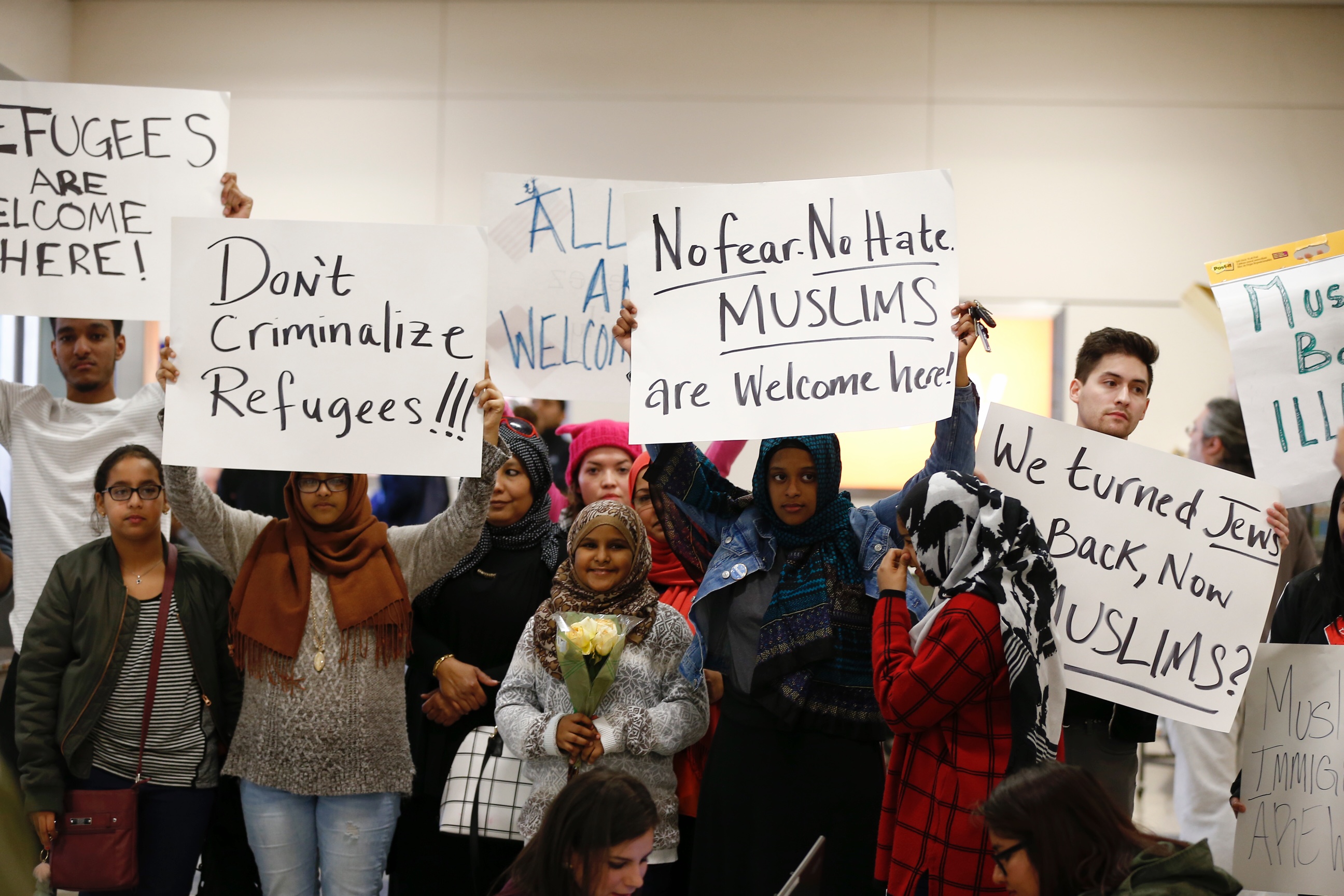
It was 6 a.m. Sunday morning. I was sitting in the Philadelphia International Airport beside my best friend. Her flight would leave in an hour.
“Do you think it will get better?” she asked. “With all the protests?”
We were both biting back tears because we had no idea when we would see each other again. She was taking leave of absence from Drexel and flying back to India, her home country. Despite the impending doom of midterms, I’d spent the last day in the U. S. with her at the Marriott Hotel, the airport’s adjoining guest accommodation.
“Not for a while,” I said.
While we were eating dinner the night before, President Donald Trump had declared an immigrant and refugee ban on citizens from seven predominantly Muslim countries. Travelers from these countries who’d taken off before the ban was put in place were being detained at their destinations in the United States, and in some cases, sent home.
Within hours, protests erupted at all of the major airports. By 8:30 p.m. Philadelphia was one of them. More than 200 people, among them Gov. Tom Wolf and Mayor Jim Kenney, were gathered in the International Arrival Hall to protest.
“Let them in,” read one sign.
“My students belong here,” read another.
My friend and I caught the tail end of the chanting. When we arrived, only a few people were left, raising their handmade signs up and down for a disgruntled newscaster, who’d missed the bulk of the action but needed a shot.
As soon as her cameraman finished filming, the remaining protesters threw their signs onto a pile of others beneath a wall-sized replica of the Declaration of Independence.
When you live in Philadelphia, it’s easy to forget this city is the birthplace of our nation. That 241 years ago, the United States’ democracy was created by a group of men that wanted a government that put power into the hands of its people.
Across the international arrival hall’s ceiling, a few of the words that created this country are plastered in curly, calligraphy-style handwriting. It’s a shortened version of the following:
“We hold these truths to be self-evident, that all men are created equal, that they are endowed by their Creator with certain unalienable Rights, that among these are Life, Liberty and the pursuit of Happiness.”
Because of the ban, an Iraqi man, Hameed Khalid Darweesh, was detained at JFK Airport overnight. Darweesh worked as an interpreter for the U.S. Army when it invaded Iraq in 2003 and later worked as a contract engineer for the United States. After lawyers petitioned a Federal Court, Darweesh, among others, was let go.
He told a waiting crowd, “America is the greatest nation, the greatest people in the world.”
A nice sentiment, but untrue. America is not the “greatest nation”, Darweesh. Not yet anyway. That’s why Trump’s here, to make it great again. I say this in jest, but who knows maybe, inadvertently, it’s true. Maybe all of Trump following through on all of his bullheaded campaign promises is what it takes to re-engage a people with a democracy they’d become uninterested in and unphased by. Maybe, in the longrun, the United States will be better off for his election.
Think about it.
Last weekend, we, the descendants of immigrants, slaves and revolutionists emerged, seemingly out of nowhere as so many media outlets pointed out, at the news of this ban — to protest a government order that defied everything it meant to be American. We drew up signs and stood in airports in unison because we believe our Muslim neighbors have the same right to chase the American dream as we do and that the United States was founded on the ideology that all people, no matter where they came from, would have the right to life, liberty and the pursuit of happiness. Regardless of where they come from.
It was 6:30 a.m. Sunday morning. I thought back to how signs from the protest had been left against a large imitation of the Declaration of Independence and the stark contrast between the signs on the posters and those on the document.
I looked at my friend and thought about how I would feel if I never got to see her again. What if she had been born in one of these seven countries? What if after she walked through security, she’d never be able to come back?
One of my favorite things about our friendship is its ability to transcend boundaries. Even when we have different opinions, we respect each other and subsequently, each other’s arguments. Likewise, even when we’re in different corners of the world, we still seem to find things to talk and laugh about. Usually, we don’t even realize we’re doing it.
In its simplest form, this ban reduces countries and their citizens to their religion. It compartmentalizes terror and Islam into one and places an unnecessary wall between the people of the United States and the people of seven of our fellow sovereignties. Which is sad, because friendships, and families, transcend these boundaries too.
Three men pushed a bag of ski luggage past the chairs where we were sitting.
“It’s going to get worse before it gets better,” I said.
“But I think it will get better.”


